Our Projects
- Home
- Our Projects
Project Management Unit
The Project Management Unit (PMU) was established in 2020 and oversees the planning, co-ordination, and oversight of projects being implemented by the SRC to ensure alignment with organizational and donor strategic objectives. The PMU engages in the identification of funding opportunities and prepares project proposals in collaboration with the SRC’s divisional managers and team leaders. A key function of the PMU is stakeholder engagement with national, regional, and international partners to foster collaboration and information exchange.

Caribbean Climate Innovation Center (CCIC) 2013-2014
The World Bank InfoDev funded project is one of eight Climate Innovation Centers (CICs) established globally, located in Kenya, Ethiopia, India, South Africa, Vietnam, Morocco, the Caribbean, and Ghana. The Caribbean CIC has been established as a Consortium which is jointly managed by two leading scientific institutions in the Caribbean, the Scientific Research Council (SRC) based in Kingston, Jamaica and the Caribbean Industrial Research Institute (CARIRI) based in Trinidad and Tobago. The Center was designed to empower developing countries to proactively and profitably adapt, develop and deploy climate-smart (clean tech) technologies and business models while also promoting innovation and entrepreneurship among micro, small, and medium-sized enterprises (MSMEs) in the region.
INVOCAB (Improving Innovation Capacities in the Caribbean) 2014-2016
A European Union funded project, implemented by SRC in Jamaica and National Institute of Higher Education, Research, Science and Technology (NIHERST) in Trinidad & Tobago, targeted primary and secondary education by enhancing science learning through upgraded laboratory facilities, teacher training, assessment visits, and summer camps.
NEPA Project – Propagation of Endemic and Endangered Flora (2015-2020)
In partnership with NEPA (National Environment and Planning Agency), this project focused on propagating, hardening, and reintroducing the endangered and endemic plant Turnera campaniflora. It also included chemical analysis and exploration of its medicinal potential.
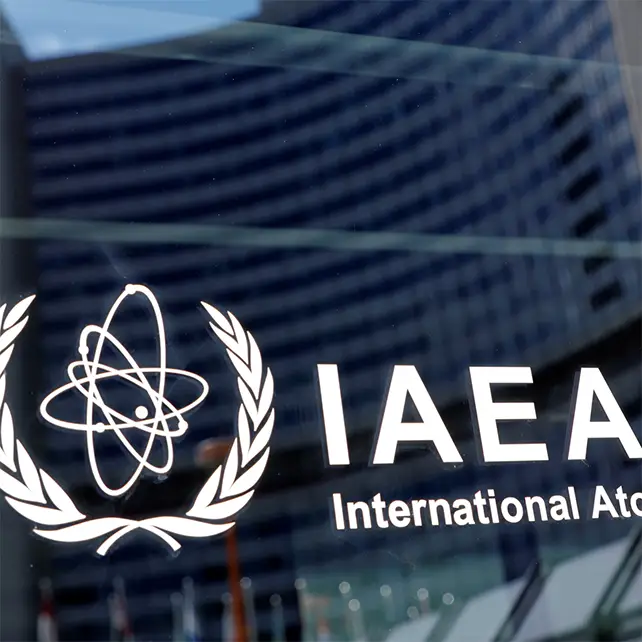
Bioavailability of proteins from the common bean in Jamaican diets 2015-2021
Funded by the International Atomic Energy Agency, this project was designed to establish an intrinsic isotopic labeling methodology for the common bean in a pilot study. By characterizing the total carbon, nitrogen and amino acid composition, the project aimed to develop a tracer to measure protein digestibility and bioavailability.
World University Service of Canada (WUSC) Propel (2016-2017)
A multi-island initiative targeting agriculture in Barbados, Dominica, Guyana, Jamaica, and St. Lucia. It supported up to 11,500 small to medium-scale producers and worked with processors and businesses to boost the supply of agricultural products especially fresh produce to high-value markets, including hotels, supermarkets, and traders.
As part of this initiative, the SRC strengthened its capacity to produce clean planting materials and identify value-added opportunities for Irish potato, ginger, sweet yam, sweet potato, and greenhouse vegetables. It supplied disease-free plantlets to farmers and agribusinesses, enhanced pest and disease management through the analysis of natural predation, and, with support from the Canadian Government-funded PROPEL project, expanded market access for the targeted crops.

JAM 5013 (2018-2019) Phase 1– Crop improvement using experimental mutagenesis and diagnostic technologies in Jamaica (Ginger and Sweet Yam)
As Jamaica turns to Mutation Breeding as a way forward to combat the lethal rhizome rot and anthracnose diseases for ginger and sweet yam respectively, the Scientific Research Council (SRC), Biotechnology Department continued work on a Technical Cooperation Project funded by the International Atomic Energy Agency (IAEA) in Plant Breeding and Diagnostic Technologies by using mutation induction technologies to solve these current problems.
Phase 1 employed mutation breeding and diagnostic technologies to develop disease-resistant varieties of ginger and sweet yam in Jamaica. This initiative aimed to address the significant yield losses ranging from approximately 50-90 percent for ginger and 60-100 percent for sweet yam due to ginger rhizome rot and anthracnose disease respectively. The development of resistant or tolerant ginger varieties and sweet yam varieties is critical for Jamaica due to the scarcity of clean ginger planting material and low resistance to ginger rhizome rot and anthracnose disease. By applying Gamma-ray treatments, the project aimed to produce plant lines resistant and or tolerant to the specified pathogens or resultant disease.
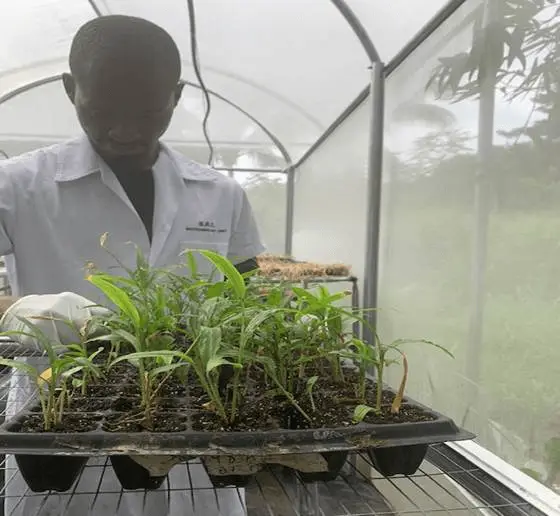
IAEA JAM5013 (2018–2022) Phase 2– Crop improvement using experimental mutagenesis and diagnostic technologies in Jamaica (Ginger and Sweet Yam)
Building on the successes of Phase 1, which included the development of initial disease-resistant lines of ginger and sweet yam using gamma irradiation, the second phase focused on multiplication, screening, and selection for disease-tolerant mutants. The project has led to enhancements in plant diagnostic competencies which have led to the development/adaptation of screening techniques. This phase was crucial for scaling up the development of resilient ginger and sweet yam varieties, further strengthening Jamaica’s capacity to tackle the challenges posed by these plant diseases.
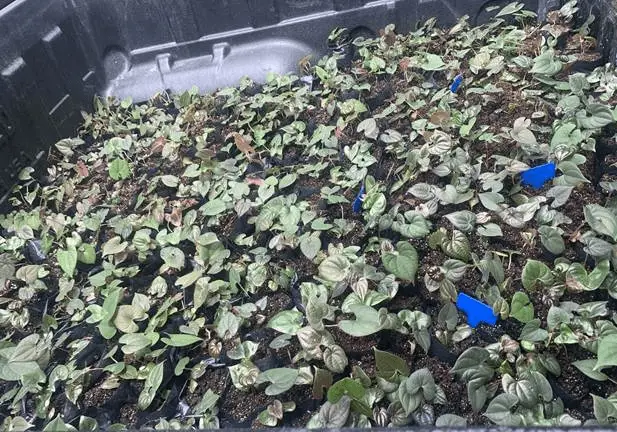
Sweet Yam Project (2020-2021)
In aiming to improve the availability of pathogen-free planting material to farmers, the Biotechnology Department provides thousands of plantlets to local farmers through the Ministry of Agriculture and Fisheries.
To this end, this project provided pathogen-free sweet yam plantlets to local farmers in Jamaica to supports healthier crop production and greater agricultural sustainability. This effort plays a vital role in strengthening food security and enhancing the productivity of the local agriculture sector.
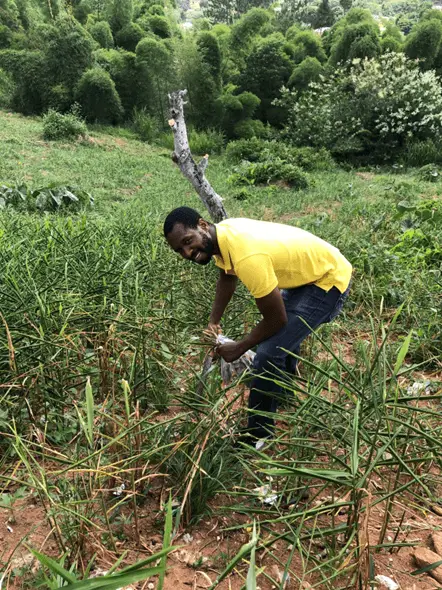
IAEA JAM5014 (2020-2022) Project- Coffee in vitro propagation and induced mutation breeding for Coffee leaf rust disease resistance.
A Technical Cooperation Project funded by the International Atomic Energy Agency (IAEA) implemented by the Scientific Research Council (SRC), Biotechnology Department employed mutation breeding using gamma irradiation to develop coffee varieties resistant to Coffee Leaf Rust (CLR) disease. This intervention was critical, as the Jamaican coffee industry has been grappling with a CLR epidemic since September 2012, caused by the fungal pathogen Hemileia vastatrix. The first widespread outbreak affected over one-third of the island’s coffee plants, resulting in millions of dollars in lost revenue. The emergence and spread of the disease have been confluence of factors ranging from changing climatic conditions, extreme weather events, inadequate farm management practices, and institutional and market constraints that have limited effective control measures.

Alliances for the Coconut Industry Development (Coconuts II) B407 Project (2021-2024)
The local and global market for coconuts and coconut by-products is thriving. However, a major challenge remains: the lack of coordination among stakeholders across the value chain, hindering sector modernization. Strengthening domestic value chains is crucial to overcoming these obstacles and promoting commercially driven development to capitalize on market opportunities.
Expanding on the achievements of the “Coconut Industry Development for the Caribbean” (Coconuts I) project, which assessed the coconut value chain and identified key constraints and opportunities for industry growth across the Caribbean, the initiative moved into its second phase with targeted interventions. The SRC, alongside the International Trade Centre (ITC), Coconut Industry Board (CIB), and CARDI, scaled up value-chain interventions through the “Alliances for Action” (A4A) approach. This effort aimed to enhance capacity in value addition, food safety, product development, and commercialization for coconut smallholder farmers and MSMEs in the Caribbean.

IAEA JAM 5015 (2024-2027)
A Technical Cooperation Project funded by the International Atomic Energy Agency (IAEA) which focuses on improving the quality, productivity, and disease resistance of economically significant crops through a multi-faceted approach. It involves establishing effective irradiation protocols to extend the shelf life of selected crops and developing sweet potato varieties with enhanced bio-pesticide properties, faster maturation, and greater resistance to sweet potato weevil.
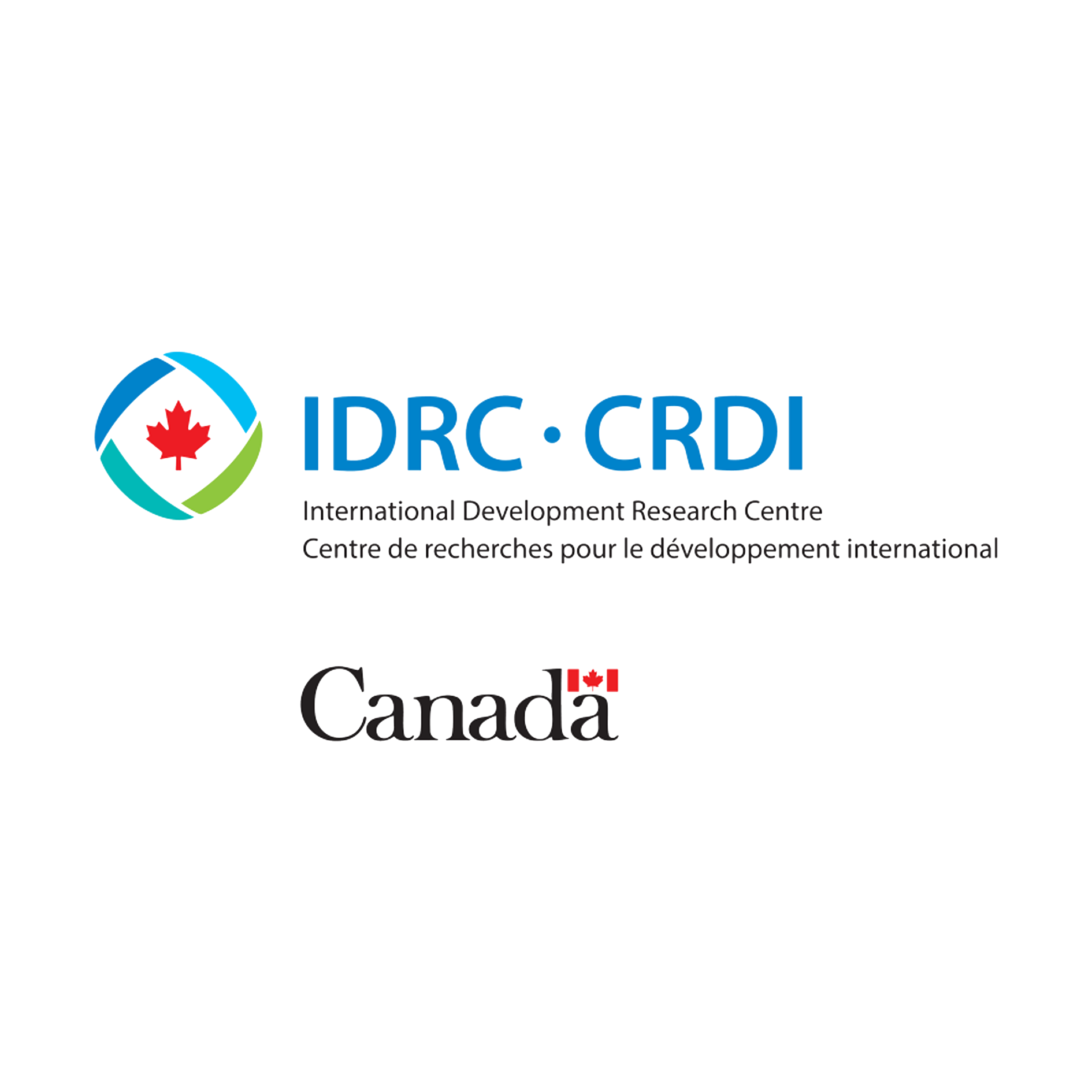
INTERNATIONAL DEVELOPMENT RESEARCH CENTRE’S (IDRC) 2025-2026
Deepening IDRC’s Understanding of Knowledge Ecosystems in the Caribbean
The International Development Research Centre (IDRC) supports and strengthens the capacity of people and institutions in developing countries to undertake the research that they identify as most urgent. This project aims to evaluate the Caribbean’s knowledge ecosystems to identify key research gaps and inform IDRC’s programming. By understanding the local context and stakeholders, it seeks to strengthen research capacity, address barriers to knowledge generation, and align efforts with inclusive development and science priorities for greater regional impact.
